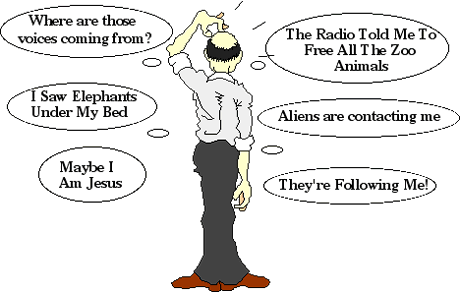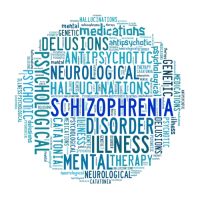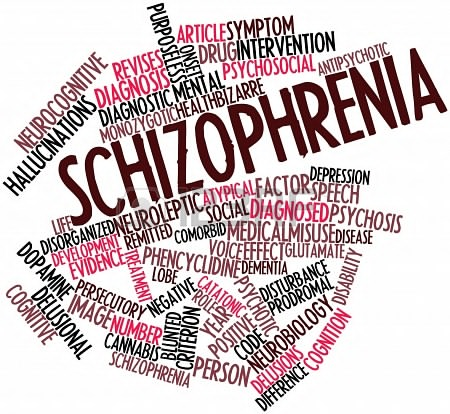Website Created by Bethany Still
|
|
Types of Schizophrenia
1.Brief Psychotic Disorder-applies to a psychotic disorder that lasts from a day to a month -characterized by at least one of the following: delusions, hallucinations, disorganized speech, or grossly disorganized or cationic behavior -full return to the person’s “normal” state
2.Schizophreniform Disorder-consists of abnormal behaviors identical to those in schizophrenia that have persisted for at least a month but less than six months -do not justify diagnosis for schizophrenia
3.Delusional Disorder-applies to people who held persistent, clearly delusional beliefs, involving paranoid themes -very rare, affecting 20 people in 10,000 during their lifetimes -delusions usually bizarre: aliens attacking
4.Schizoaffective Disorder- also called “mixed bag” -includes psychotic behaviors associated with schizophrenia (hallucinations and delusions) occurring at the same time as a major mood disorder -Delusions or hallucinations must have occurred for at least two weeks during some point of the disorder -often respond to schizophrenia drugs |
Theory about the Development of Schizophrenia -Developmental theories of schizophrenia simply say that something may or may not go wrong with the brain when it is developing. The following have been proven true: (Nevid, 423)
|
Treatment There is NO real treatment for schizophrenia! However, there are antipsychotic medications available for patients to control symptoms, such as hallucinations and delusions.There are biological treatment approaches, sociocultural factors in treatment, learning-based therapies, psychosocial rehabilitation, and family intervention programs that an individual can partake in. Listed below are some of the different treatments that are available. |
Medications -Because the causes of schizophrenia are mostly unknown, the treatments for this disorder focus on eliminating the symptoms (NIMH, 2013). -The most common antipsychotic medications that are used to treat the symptoms of schizophrenia include: Chlorpromazine (Thorazine), Haloperidol (Haldol), Perphenazine (Etrafon, Trilafon), and Fluphenazine (Prolixin).
Schizophrenia Complicated by Chronic Hepatitis C Virus and Hepatic Encephalopathy -A study done by Mark Viron, M.D and others shows that there is an elevated prevalence of liver disease, alone with heptatis C virus, in populations with serious mental illness. -Chronic HCV infection is present in 8.5%−30% of people with serious mental illness, a rate 5–16 times higher than in the general population (Viron). -Substance use, particularly injection drug use, is an important vector for transmission of HCV (Viron) -Nearly 50% of patients with schizophrenia meet criteria for a substance use disorder in their lifetime (Viron) -Rates of lifetime injection drug use in samples of patients with serious mental illness range from 5% to 35%, compared with 1.4% in the general population (Viron). Biological Approaches -Antipsychotic medications help individuals control their patterns of schizophrenia, such as delusional thinking and hallucinations (Nevid, 429). -The Diathesis-Stress Model Sociocultural Factors in Treatment -It has been questioned rather or not ethnicity plays a role in a family's involvment in treatment. -Maintaining connections between the person schizophrenia and the family and larger community is part of the cultural tradition in many cultures (Nevid, 429). Learning-based Therapies -Learning-based interventions have been proven to be effective in modifying schizophrenic behavior and in helping people with the disorder develop behaviors that help them adjust more effectively to living in the community (Nevid, 430). Therapy Methods May Include:
Psychosocial Rehabilitation -It has been proven that people with schizophrenia typically have difficulties functioning in social and occupational roles and performing work that depends on basic cognitive abilities involving attention and memory (Nevid, 431). -There are a number of self-help clubs (clubhouses) available for use
|
Where to go for Help
|




